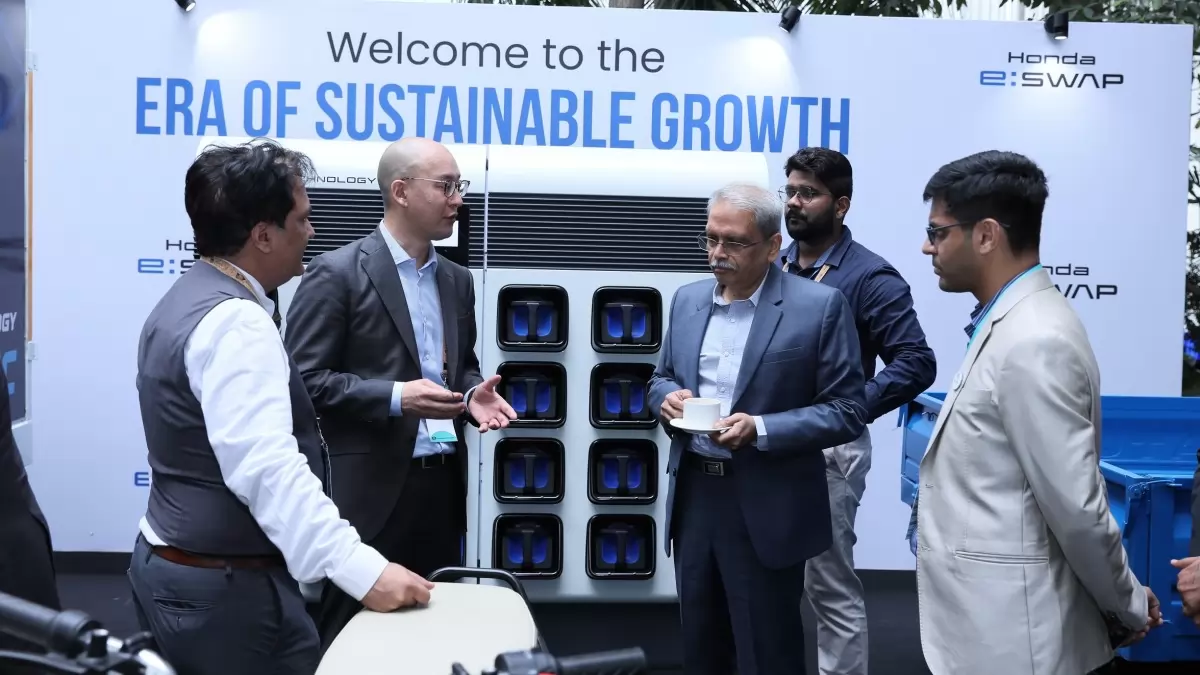"Today, to protect the environment and address climate change, India is moving forward with a very clear roadmap," Prime Minister Narendra Modi proclaimed on World Environment Day in June this year. Three months later, while addressing the G20 Leaders' Summit, he further emphasized the urgent need for global cooperation to combat climate change and fund the transition to sustainable energy systems.
Fortuitously, the Sustainable Development Report 2022 ranks India 121 out of 163 nations with a Sustainable Development SDG (SDG) index score of 60.3. However, the country’s performance as per SDG 11 (sustainable cities and communities) indicates that it is premature to burst some bubbly.
Advertisement
The pressing issues of pollution and climate change, both on a global scale and within India, have brought forth substantial challenges that the country faces. Over the past few weeks, Delhi and Mumbai have been battling an increasing air pollution crisis.
According to the Central Pollution Control Board (CPCB), Delhi's air quality index [AQI] reading increased by over 200 points between October 27 and November 3, compelling the state government to restrict the use of vehicles to curb rising air pollution. Taking suo moto cognizance of the deteriorating AQI in Mumbai, the High Court issued notice to the Brihanmumbai Corporation, Maharashtra State Pollution Control Board (MPCB), and Central Pollution Control Board (CPCB).
Advertisement
Pollution Crisis: A Call for Clean Mobility Solutions
The rising pollution distress in these metros emphasises the immediate necessity of embracing clean mobility solutions, which can address the dual challenge of rapid urbanization and the need for sustainable development. This is what Shreyas Shibulal, founder and director of Micelio Mobility, keeps telling everyone he encounters—from policymakers, fellow entrepreneurs, start-up founders, and students.
"Adoption of electric vehicles (EVs) and smart infrastructure in urban environments provides a sustainable alternative to traditional transportation, dramatically lowering urban pollution and improving the general quality of life. Simultaneously, clean mobility impacts rural development, where EVs, particularly electric two-wheelers, serve as critical tools for last-mile connectivity, overcoming geographical barriers, and boosting access to important services," he emphasised.
Clean mobility's strength rests in its adaptability to various environments, fitting with the varying societal requirements of urban and rural communities. This technology reduces carbon emissions and promotes equitable development by addressing mobility issues in places with little traditional infrastructure.
Empowering Clean Mobility Start-Ups
As a complete strategy for balancing human needs and environmental responsibilities, clean mobility is poised to play a critical role in unlocking sustainable urbanisation and supporting rural development across the Indian subcontinent. This is where clean mobility start-ups step in and where Shibulal wants to give them a leg up.

His company organized its inaugural ‘Micelio Global Clean Mobility Summit 2022’ in Bengaluru, bringing together founders, investors, and policymakers from across the globe to ideate, connect, and collaborate on clean mobility solutions in India and abroad.
Advertisement
Shibulal maintains that the transition to clean mobility is not a gradual shift but a tectonic one. This means it needs investment across the board, including deep-tech innovations, building an entirely new infrastructure and ecosystem, and changing consumer behaviour.
"Every stakeholder has a role to play here, and our vision was to enable this with the seed capital to foster innovation that helps enable the clean mobility ecosystem and accelerates the transition," he opined.
In the previous month, the National Investment and Infrastructure Fund (NIIF), India's quasi-sovereign wealth fund, collaborated with the Japan Bank for International Cooperation (JBIC) to establish a $600-million fund dedicated to investing in sustainability projects. It will focus its investments on sustainable projects, particularly in e-mobility, renewable energy and waste management. According to a statement from the Indian government, JBIC will contribute 51 per cent of the fund, with India covering the remaining portion.
Advertisement
Driving Positive Change: Micelio's Initiatives
At the Summit, G20 Sherpa and former CEO of NITI Aayog, Amitabh Kant, shared his insights on India's path towards a net-zero future. It also had four founder stories highlighting their entrepreneurial path, which served as a reminder that the sustainable mobility revolution is about more than simply technology; it is also about the visionaries pushing change.
The event also saw the launch of the ‘Catalysing E-Mobility: Solutions to Support India’s Start-ups and Innovators’ report, which Micelio Mobility created in association with RMI India Foundation & NSRCEL, IIM Bengaluru.
It was a result of the ‘Catalysing E-Mobility: India Innovators Forum’ that the three entities conducted in September last year to solicit open dialogue among stakeholders in the clean mobility sector, including start-ups, venture funds, and academicians, to better understand the current state of the clean mobility ecosystem, emerging challenges, and possible solutions.
Advertisement

One of the major challenges that several clean mobility and EV start-ups face is balancing positive unit economics amidst a funding crunch. Managing their cash flows while juggling supply chain issues, talent crunch, and competition from well-funded bigger companies often drags their product development processes.
Now, positive unit economics is core to any solid business, and entrepreneurs in the clean mobility space know this well. Shibulal has observed people building businesses with positive unit economics being one of the core areas of focus. This is also why he started Micelio with a vision to create a platform that catalyzes the transition to clean mobility.
Advertisement
"We work closely with our companies to give them access to a world-class facility for early product development, the largest community for knowledge sharing and access to potential suppliers/vendors and customers, and work closely with relevant policymakers and regulators to help build the roadmap for the future of clean mobility in India. The network across our operating entities and community enables improved access to suppliers, talent, and potential customers, which, in turn, helps the entire industry grow and enable the transition," he elaborated.
Fostering Innovation In Clean Mobility
A clean mobility-focused seed portfolio, Micelio Technology Fund (MTF) is a $30 million fund with investments in eight companies so far. It is looking for innovative companies comprising IP-led hardware or product and B2B start-ups, as well as those disrupting the incumbent business models and enablers of the ecosystems that are core to enable different layers of this transition. Shibulal claimed that MTF is closing in on halfway term for the fund and will look to get to its target deployments soon, after which it will double down on its portfolio.
And then there is Micelio Discovery Studio, a separate entity under Micelio Mobility. It functions as a business growth enabler for developing clean mobility products and services to address the scarcity of affordable testing equipment as the start-up progresses from concept to working prototype. As an engineering, testing, and validation facility, it hosts community-focused events, workshops, and collaborations, fostering an ecosystem where start-ups can access talent and knowledge.
Furthermore, Micelio Mobility is working on talent development through the AITCE LITE-approved Micelio EV Curriculum developed in partnership with Pupil First. Last November, the company collaborated with ARAI and the Ministry of Heavy Industries (MHI) to establish Digital Twin Centers for Emerging Automotive Systems at Pune, Bengaluru, and IIT Guwahati.
Its Common Engineering Facility Center (CEFC) centres in Bangalore and Pune are helping start-ups fast-track their product development, improve product performance, and reduce costs, leading to a faster time-to-market through access to advanced Hardware-in-the-Loop (HIL) systems, ICME, and AI-ML resources.
Clean Mobility: A Sustainable Alternative
The HIL system has been successfully installed and commissioned in both the Bangalore and Pune centres, marking the initial phase of our Digital Twin Center. More than 25 start-ups, MSMEs, and large companies have already shown enthusiastic interest, with numerous visits to the facilities.
"Our Pune centre has made Integrated Computational Materials Engineering (ICME) and AI-ML available to these start-ups since these resources provide start-ups with the means to leverage advanced algorithms and data analysis techniques to gain insights, make predictions, and automate decision-making processes," Shibulal claimed.
By harnessing AI-ML, start-ups can extract valuable information from large datasets, identify patterns, and improve the efficiency and effectiveness of their operations. Talking about the business model for these centres, he added that Micelio had established a strategic partnership framework that encompasses potential revenue streams from specialised joint research initiatives and consultancy services for various industries.















 Just one email a week
Just one email a week